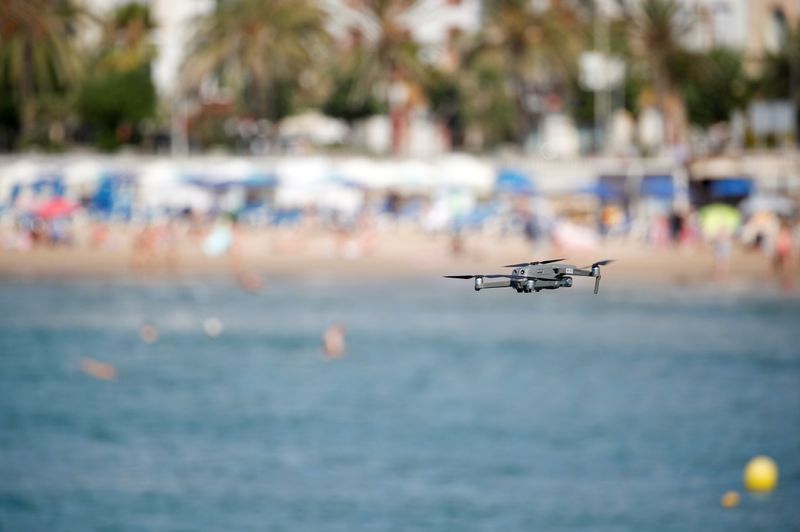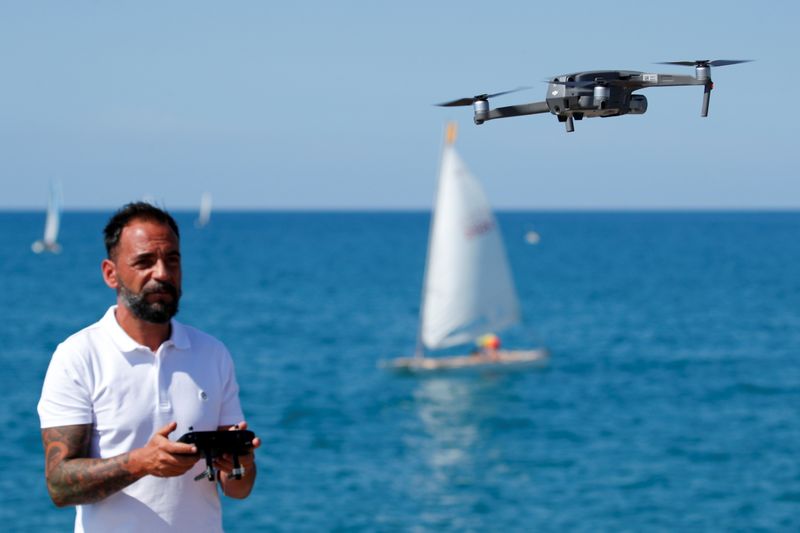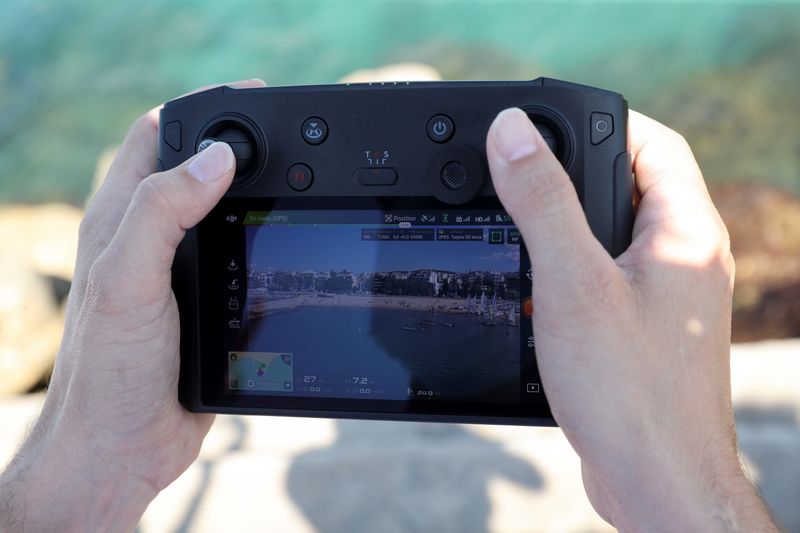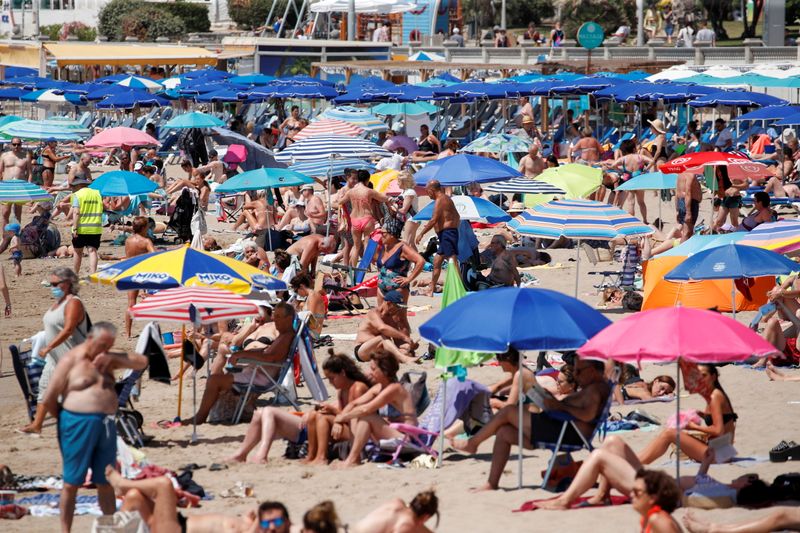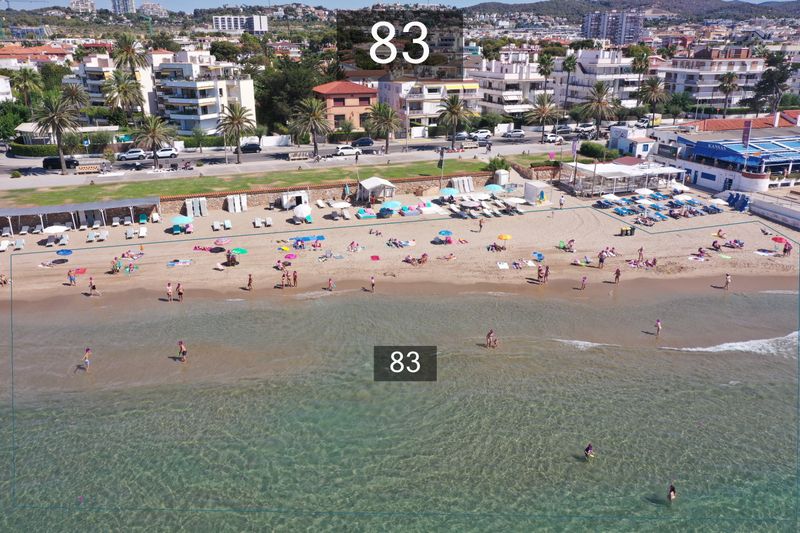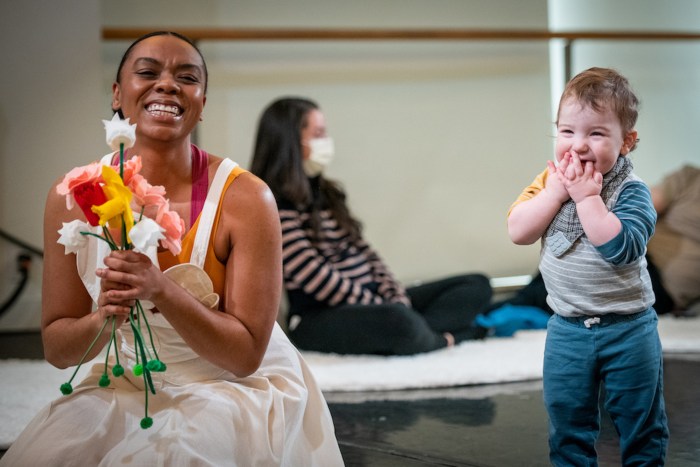SITGES, Spain (Reuters) – With a summer heatwave sending hordes of people to the beach, authorities in the northeastern Spanish seaside town of Sitges are trialling the use of drones to monitor crowds in real-time and counter a rapid rise in COVID-19 contagion.
“It’s a pioneering system,” said Ricardo Monje, a drone operator with the project’s developer Annunzia ES. “We can take photos, pass them through some software and with the software we can count how many people are on the beach.”
The pilot project will through August 22 and should allow authorities to react faster to crowds forming along Sitges’ 18 kilometres of beach, the town hall said.
“If we see the beach is very crowded we can pass that information on to the beach monitors who will make checks and ensure people are keeping their distance,” said local official Guillem Escola.
“If people don’t take notice, then we send in the police.”
The town hall said the project would adhere to all data-protection laws and ensure any images captured of people would remain anonymous, but some local residents harbour concerns.
“I think it’s a good idea but they must communicate with the population and identify the drone because otherwise it’s an intervention in our civil liberties,” said Jimmy Burns, an Anglo-Spanish journalist and writer who lives in Sitges.
Police in Madrid have already been using drones equipped with spotlights and loudspeakers to locate and break up outdoor parties.
Spurred on by the highly contagious Delta variant and a sharp increase in socialising among young people, Spain’s COVID-19 incidence has more than tripled in the past two weeks.
Regional authorities in Catalonia, which has Spain’s highest 14-day infection rate of 1,068 cases per 100,000 people, more than double the national average, said on Wednesday they would impose a curfew on 158 municipalities, including Sitges.
(Writing by Nathan Allen and Emma Pinedo, editing by Andrei Khalip and Raissa Kasolowsky)

